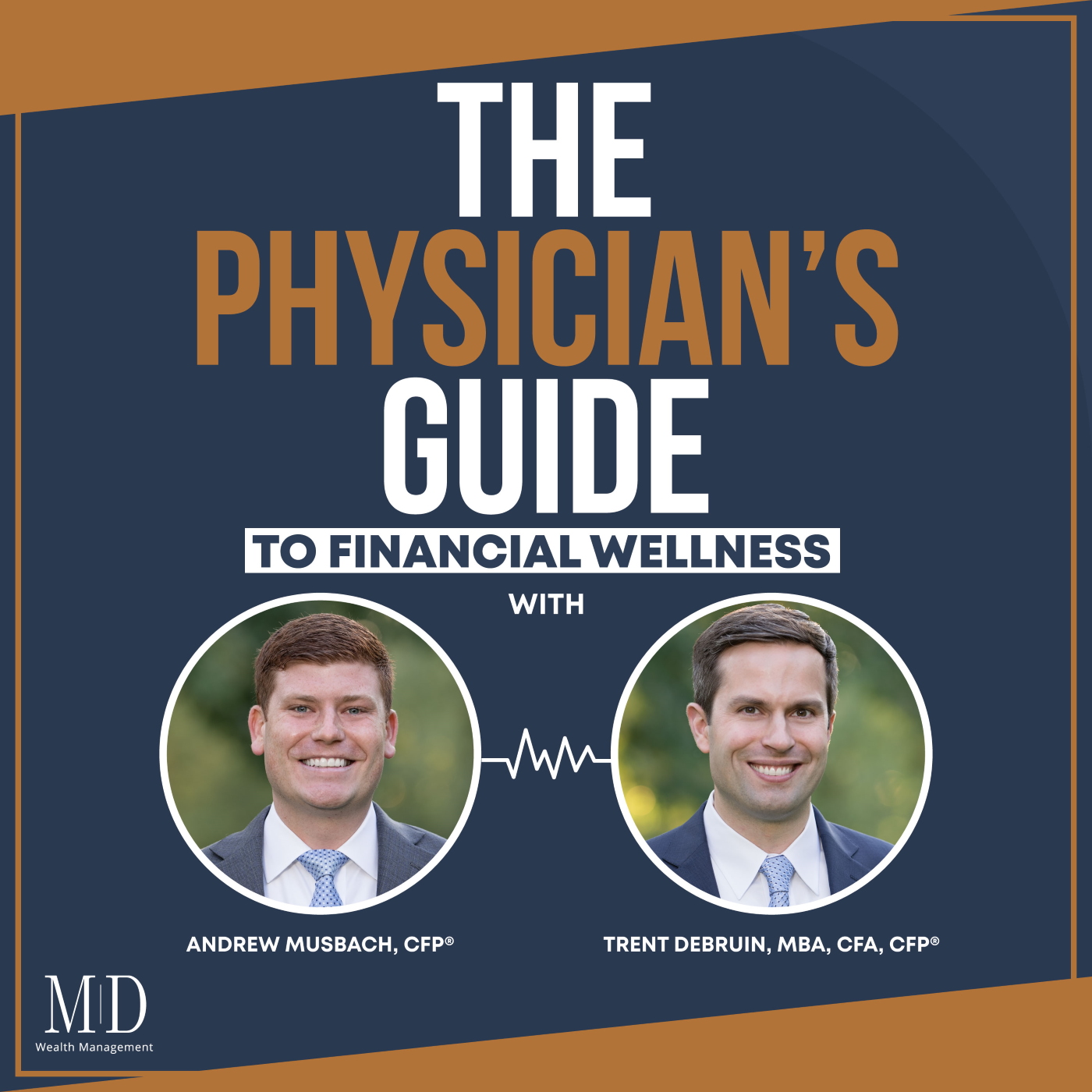
The Physician's Guide To Financial Wellness
Trent DeBruin, Andrew Musbach
Podcast
Episodes
Listen, download, subscribe
Higher Interest Rates - Opportunities and Implications
• 18 minOver the past two years, there has been a dramatic increase in interest rates from historically low levels, the impact of which has been felt by everyone, regardless of stage of life. In this episode, we take a closer look at this dynamic. We start by explaining what an interest rate is, provide some historical context for how the current environment compares to prior periods, talk about how the impact of higher interest rates varies depending on the stage of life you're in, and wrap things up by sharing some potential strategies and opportunities that are presented by higher interest rates. Resources & People Mentioned Download our guide: The Toolkit for Optimizing Your Finances as an Employed Physician Download our guide: The Financial Checkup Connect With Trent and Andrew https://mdwmllc.com Follow on LinkedIn Follow on Facebook Subscribe to The Physician's Guide To Financial Wellness on Apple Podcast, Spotify, and Google Podcast
The Physician's Guide To Financial Wellness RSS Feed

